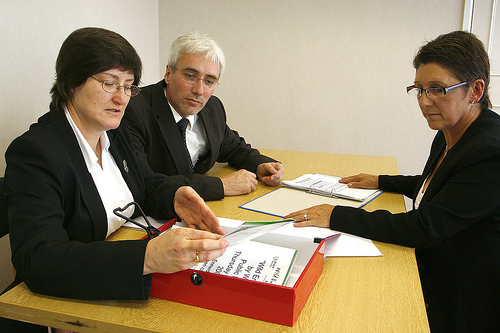Assessment tools - Professional assessment
Professional Assessment Conversations
A professional assessment conversation is often used as an assessment tool for recognising prior learning. The conversation is between the assessor/s and the candidate to draw out or clarify information on the candidates individual experiences and relevant skills in relation to the learning outcomes or graduate profile for which the candidate is demonstrating their prior learning. The conversation allows for additional information to be provided that may not have been included as part of the evidence presented. The assessor/s use their professional knowledge and expertise to encourage the candidate to expand upon the evidence and information provided through the types of questions asked.
Questions that are used in a professional assessment conversation are not intended as a form of test or exam but as encouragers for the candidate to express more about their prior learning and how it was acquired.
|
As with any assessment method there are key principles that need to be adhered to.
What are the four key principles?
|
| Assessments may begin with a presentation by the candidate and then a professional assessment conversation may occur following the presentation.This is an approach often used for full qualification RPL assessments.
Another approach could be using the professional assessment conversation as the main way in which prior learning is explored and this would be supported by evidence. This approach works well for the RPL of a course where the candidate prefers to talk to, outline or explain aspects of their prior learning and experience. Do a little exploring. Can you think of other ways in which a professional assessment conversation can be used? |
| Using your search skills find out more about other methods of assessing prior learning
|
Consider the following questions:
Add your thoughts to your learning journal.
|
|
Remember to submit an excerpt from your exploration around this module and the previous module. Send this directly to Heather. Critically consider the process of assessing for prior learning from the perspective of a lecturer in an assessor or facilitator role, exploring the following areas:
NB: Critical discussion involves a depth of thought that considers and debates a variety of perspectives including your own. Critical in this sense refers to reviewing, analysing and evaluating in depth; it does not mean focusing on negativity. It is possible to critically discuss and still totally agree with a particular perspective. |

